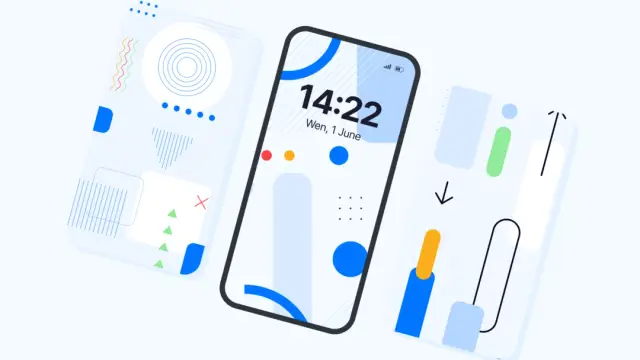How to Use Dall-E 2?
Discover how Dall-E 2, an AI-based image generation tool, works and how to use it effectively. Learn about its applications, limitations, and potential impact on businesses.

Introduction to Dall-E 2 and Image Generation
Dall-E 2 is an advanced AI-based image generation tool that can create high-quality images from textual input. By providing a text prompt, Dall-E 2 generates images that accurately represent the given description. It uses a machine learning model based on the same architecture as GPT-3, transforming textual prompts into creative and unique visual content.
The development of Dall-E 2 showcases a significant breakthrough in leveraging AI and artificial neural networks for creative purposes. Not only can it produce highly nuanced and imaginative images, but it can also understand and interpret complex instructions. With its ability to generate visually appealing images aligned with your goals, Dall-E 2 has the potential to become an invaluable tool for various industries and applications. From enhancing marketing campaigns to revolutionizing the world of art and design, businesses can benefit from incorporating Dall-E 2 into their creative processes.
Setting Up and Using Dall-E 2
Before you can start generating images with Dall-E 2, you need to set it up and prepare it for use. The process generally involves the following steps:
- Gathering and Preparing Data: To train the Dall-E 2 model, you need to collect a large dataset of images and their corresponding textual descriptions. This dataset should be diverse, high-quality, and accurately labeled. Once you have gathered your data, you need to preprocess it by resizing images, normalizing pixel values, and converting text into tokens.
- Training the AI Model: Train your Dall-E 2 on the prepared dataset using unsupervised learning algorithms. Depending on the size of your dataset and the complexity of your task, this process can take some time to complete. It is essential to use powerful hardware, such as GPUs, to speed up the training process.
- Evaluating and Fine-tuning the Model: After training, evaluate your model's performance by comparing its generated images with their respective textual descriptions. If the results are not satisfactory, you can fine-tune the model by adjusting its architecture or training parameters.
- Generating Images: Once you have a well-trained Dall-E 2 model, you can start generating images by providing textual prompts. The model will produce several image variations based on the provided text, allowing you to choose the best output.
To guide you through the setup and usage of Dall-E 2, you can refer to detailed tutorials or the official documentation provided by the creators of the tool. These resources will help you understand the intricacies involved in getting the best results from Dall-E 2.
Exploring Dall-E 2 Applications in Various Industries
Dall-E 2's ability to transform textual prompts into creative and accurate visualizations makes it a valuable tool in numerous industries and application scenarios:
Marketing and Advertising
By generating eye-catching images for promotional materials, Dall-E 2 can enhance the visual appeal of your marketing campaigns. Whether you need to create images for social media, website banners, or print advertisements, Dall-E 2 can help you quickly develop impactful visual content.
E-commerce and Product Imagery
Dall-E 2 can facilitate the generation of product images for your e-commerce store. By providing textual descriptions of your products, you can create an extensive catalog of visually appealing and accurate product images without the need for professional photography.
Fashion Design
Fashion designers can leverage Dall-E 2 to generate sketches and designs based on their ideas and inspirations. This can help streamline the initial design process, explore various stylistic options, and create aesthetically unique designs faster.

Art and Illustration
Artists and illustrators can use Dall-E 2 as a creative assistant, providing textual prompts to generate unique artwork or illustrations. This can save time during brainstorming sessions and allow artists to explore different visualizations of their ideas quickly.
Gaming and Entertainment
Developers in the gaming and entertainment industries can use Dall-E 2 to generate concept art, character designs, and background images during the pre-production stage. This can simplify the development process, reducing the need for manual image creation and speeding up creative workflows.
Research and Visualization
Researchers and scientists can use Dall-E 2 to visualize complex data, theories, or phenomena. By translating textual prompts into images, Dall-E 2 can help communicate complex concepts to a non-specialist audience or aid in the understanding of intricate ideas.
Limitations and Ethical Considerations
While Dall-E 2 offers a range of possibilities for businesses and individuals alike, it's crucial to consider its limitations and potential ethical concerns. Understanding these aspects can help you make an informed decision when using this powerful AI technology.
Output Limitations
One of the primary limitations of Dall-E 2 is its potential to output inappropriate or biased images based on the training data. If the AI model has been trained on a dataset containing biased or offensive content, it may inadvertently generate harmful imagery. This may lead to reputational risks and potential legal issues for businesses using the generated content.
Another limitation involves stimulus generalization. Dall-E 2 might struggle to generate accurate images for rare or complex prompts as it relies on the patterns it has learned during the training process. As a result, the AI may fail to recognize specific objects, scenes, or combinations that are not well-represented in the training set.
Ethical Concerns
Multiple ethical concerns should be considered when using Dall-E 2:
- Job loss: The rapid growth and adoption of AI technologies like Dall-E 2 can displace jobs, primarily affecting workers in image generation and content creation industries.
- Deepfakes: The AI-generated content opens the door to malicious use, such as creating false images or deepfakes to spread disinformation or harm individuals and organizations.
- Misinformation: The ease of generating false images with Dall-E 2 can contribute to the spread of inaccurate information, impacting public opinion and critical decision-making.
Intellectual Property and Copyright
When using AI-generated images, it's essential to ensure compliance with intellectual property rights and copyright regulations. The images generated by Dall-E 2 might sometimes resemble existing copyrighted material, and using such content without permission can lead to legal issues. Consider the following steps to mitigate potential risks:
- Verify that the generated content does not infringe on intellectual property rights before publishing or distribution.
- Document the source of the generated images and the AI tool used, owing to the possibility of future legal disputes.
- Monitor advancements in AI regulation and adjust usage policies accordingly to remain compliant with changing legal environment.
Incorporating Dall-E 2 with the AppMaster Platform
Integrating Dall-E 2 with the AppMaster platform can enhance your application development experience by introducing dynamic and unique images tailored to your specific needs. Through API integrations, Dall-E 2 can effectively work together with AppMaster to generate content and improve the user interface of your web and mobile applications. Here are some ways you can incorporate Dall-E 2 with the AppMaster platform:
- UI Design: Use Dall-E 2 generated visuals to create unique and eye-catching web and mobile application interfaces. You can include custom backgrounds, icons, and other UI components generated by the AI model.
- Dynamic Content: Integrate Dall-E 2 with your existing content management systems to generate images tailored to user preferences and browsing history. This can significantly improve engagement and conversion rates for your applications.
- Marketing and Advertisements: Enhance your marketing efforts by using Dall-E 2 to create personalized and attention-grabbing visuals for ad campaigns, featuring dynamic content that resonates with your target audience.
- In-app Galleries: Showcase Dall-E 2 generated images within your applications, allowing users to explore diverse visual content based on specific inputs or themes.

To achieve seamless integration with your AppMaster projects, follow these steps:
- Access the Dall-E 2 API documentation and retrieve the API key, taking note of usage limits and pricing.
- Use the AppMaster API integration feature to connect Dall-E 2 with your application.
- Design workflows that utilize Dall-E 2 for image generation based on user input or contextual information within the application.
- Test the integration thoroughly, ensuring that generated images are displayed correctly and without errors.
By thoughtfully integrating Dall-E 2 with the AppMaster platform, you can elevate your applications' visual appeal, create engaging user experiences, and streamline the image generation process for your development team. However, always be mindful of the limitations and ethical concerns related to AI-generated content to ensure responsible and compliant usage.
FAQ
Dall-E 2 is an AI-based image generation tool that produces high-quality images from textual input, transforming prompts into unique and creative visual content.
The setup and usage process of Dall-E 2 generally involves gathering and preparing data, training the AI model, and using the trained model for image generation. Detailed tutorials and official documentation can guide you through this process.
Dall-E 2 can be used in industries like marketing, fashion, e-commerce, art, gaming, and others. It can help generate product images, advertisements, fashion sketches, concept art, and more.
Limitations include outputting inappropriate or biased images, problems with stimulus generalization, and the potential of intellectual property violations. Ethical considerations involve concerns about job loss, deepfakes, and misinformation.
By using API integrations, you can connect Dall-E 2 to the AppMaster platform, allowing you to generate images for your web and mobile applications, enhancing user interfaces, and creating interactive content.
While there might be some costs in the form of cloud computing, storage, and API calls, specific pricing depends on the provider and resources used. It's important to research and plan ahead for any expenses.
Dall-E 2 primarily focuses on generating static images. However, advances in technology may eventually extend its capabilities to include animated images or videos.
The generated images by Dall-E 2 might sometimes resemble existing copyrighted material. It's essential to ensure the generated content does not infringe on intellectual property rights before usage or distribution.





